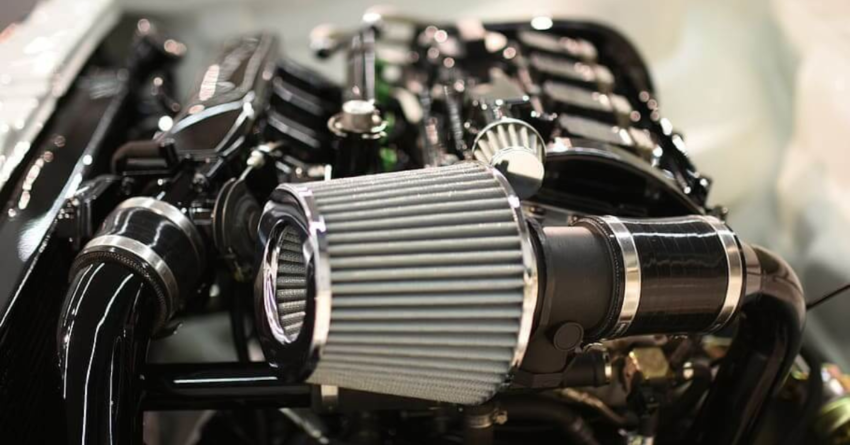For car enthusiasts, the thrill of a performance boost can be irresistible, especially with accessible modifications like a Stage 1 tune. But how bad can a Stage 1 tune hurt a car? While it offers impressive gains, especially for beginners, it is essential to understand the implications and potential risks involved. Below, we explore the impacts of a Stage 1 tune on various aspects of a car, the potential downsides, and strategies to mitigate these effects.
Understanding Stage 1 Tuning
Stage 1 tuning generally refers to the initial level of performance modification on a car. It involves changes to the engine control unit (ECU) software, which adjusts the car’s air-fuel mixture, turbo boost, and ignition timing for increased power and torque. Unlike more advanced tuning stages, Stage 1 tuning typically does not require hardware modifications, making it more accessible and cost-effective.
Why Car Owners Opt for Stage 1 Tuning
Car owners often seek Stage 1 tuning because it provides a significant power boost without requiring major mechanical changes. Some advantages include:
- Increased horsepower and torque: A Stage 1 tune can increase power by 10-25%, depending on the car model.
- Improved throttle response: Many drivers find acceleration to be sharper and more responsive.
- Better fuel economy: In some cases, optimized ECU settings can improve fuel efficiency under specific driving conditions.
Exploring How Bad Can a Stage 1 Tune Hurt a Car
Despite its advantages, Stage 1 tuning carries certain risks that may impact a car’s reliability, longevity, and safety. Let’s explore these potential downsides in detail.
Increased Engine Wear and Tear
With a Stage 1 tune, the engine operates at higher performance levels than originally designed. This extra strain on engine components can lead to premature wear and potential damage. The higher boost levels and increased temperatures may negatively impact components such as:
- Pistons and piston rings
- Turbocharger components
- Cylinder head gaskets
Over time, these parts may wear out faster, requiring more frequent maintenance or replacements.
Reduced Fuel Efficiency
While some drivers experience better fuel economy with a Stage 1 tune under certain driving conditions, the reality is that fuel consumption usually increases. A Stage 1-tuned car may require premium fuel and consume more fuel under high-performance driving conditions due to the increased engine output. This reduction in fuel economy can lead to higher overall operating costs for the car.
Impacts on Drivetrain Components
The drivetrain components, including the clutch, transmission, and differential, are also at risk of accelerated wear with a Stage 1 tune. Cars not designed for high power output may suffer from:
- Premature clutch wear
- Strain on the transmission gears
- Increased stress on the driveshaft
These issues are more pronounced in manual transmissions due to the direct engagement between the driver and the drivetrain.
Impact on Vehicle Warranty
One of the most significant concerns with Stage 1 tuning is the effect on vehicle warranty. Many manufacturers will void the warranty if they detect a tune on the vehicle, as it involves altering the ECU. Some dealerships may even flag a tuned ECU as a potential liability, limiting the support they offer under the warranty.
Emission System Compliance
Stage 1 tuning can lead to changes in emissions, which may affect compliance with local environmental regulations. Many Stage 1 tunes alter air-fuel ratios and exhaust emissions, potentially pushing a car’s emissions beyond legal limits. In some regions, this may lead to issues during annual inspections or could result in fines if the vehicle fails emissions testing.
Higher Insurance Premiums
Insurance companies may increase premiums for tuned cars or, in some cases, refuse coverage altogether. With a Stage 1 tune, the risk factor is often deemed higher due to increased performance, leading to higher chances of accidents. Failing to disclose tuning modifications to your insurance provider could also void coverage in the event of an accident.
How to Mitigate the Risks of Stage 1 Tuning
If you decide that the benefits of Stage 1 tuning outweigh the potential downsides, there are several strategies to mitigate these risks and prolong the life of your vehicle.
Regular Maintenance is Key
Tuning increases the strain on various car components, which makes regular maintenance crucial. It is recommended to:
- Change the oil more frequently to reduce engine wear.
- Inspect turbochargers, pistons, and other engine parts regularly for signs of wear.
- Check the cooling system to ensure it can handle increased temperatures.
Use Quality Parts and Premium Fuel
A Stage 1 tune may demand higher-quality components to maintain performance levels. Use premium fuel to reduce engine knock and optimize performance. Additionally, investing in high-quality oils and fluids that can withstand high temperatures will protect critical engine parts from excessive wear.
Limit Aggressive Driving
Although tuning makes cars more enjoyable to drive, reducing aggressive driving habits can significantly extend component life. Avoiding prolonged periods at high RPMs or aggressive acceleration will minimize stress on the engine and drivetrain.
Choose a Reliable Tuning Service Provider
Selecting an experienced and reputable tuning service can make a significant difference. A professional tuner will tailor the ECU adjustments to suit your specific vehicle model and its mechanical limits, preventing over-tuning and the risks associated with it.
Conclusion
In summary, how bad can a Stage 1 tune hurt a car? While the power gains are tempting, weighing these risks carefully can help protect your investment. With regular maintenance and smart driving, you can still enjoy the benefits of Stage 1 tuning while minimizing potential damage.
FAQs
Does a Stage 1 tune void the warranty?
Yes, many manufacturers consider tuning a modification that voids the warranty, as it changes the car’s factory settings.
Can a Stage 1 tune improve fuel efficiency?
While it’s possible under specific conditions, increased performance often leads to higher fuel consumption overall.
Will a Stage 1 tune damage the turbocharger?
Potentially, higher boost levels increase strain on the turbo. Regular maintenance can help mitigate this risk.
How long can an engine last with a Stage 1 tune?
With proper maintenance and careful driving, a tuned engine can last a long time, though its lifespan may still be shorter than an untuned engine.
Is Stage 1 tuning illegal?
Stage 1 tuning is generally legal, but emission compliance varies by region, and a tune may lead to higher emissions than legally permitted in some areas.

